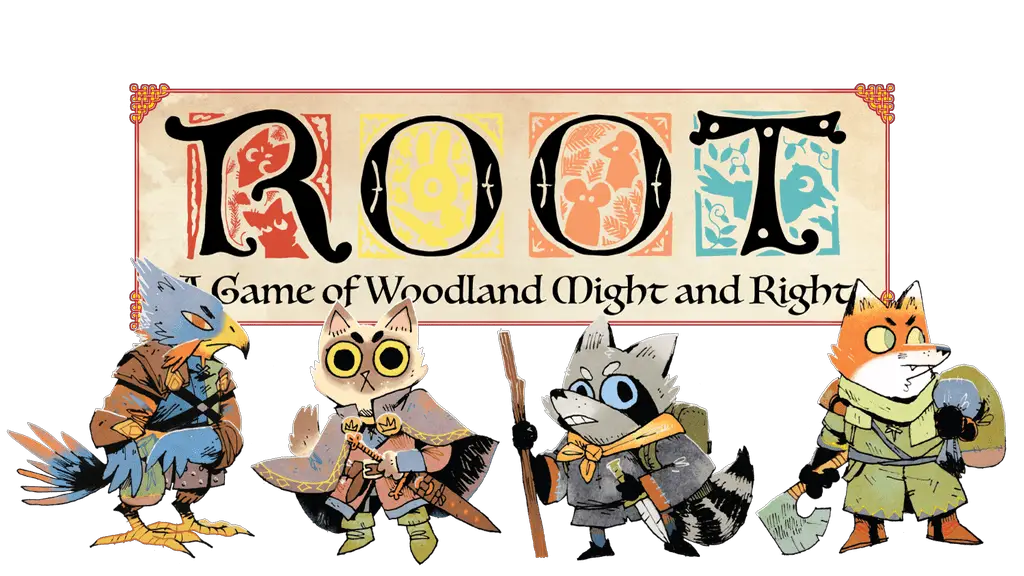The board game revolution is in full swing, and there’s never been a better time to play than right now. Hardcore hobbyist games are at Target and Barnes & Noble, Kickstarter campaigns are making millions, and the industry is flush with innovative games from indie publishers and major companies alike. The online board game community is thriving as well, as reviewers and influencers find more and more success on Youtube and Twitch. For board game fans, the future looks as bright and shiny as a new game’s shrinkwrap.
Ten years is a long time, and there have been a LOT of games, and a great many of them did something new or different that helped distinguish them from the rest. But some games stood above the rest, changing gaming forever and setting the bar for their genre in a way that no other has. These are the games on our list. By no means is this comprehensive, and I won’t deny a degree of bias, but we don’t feel we’d be where we are today without these games.
Cards Against Humanity (2011)
Publisher: Cards Against Humanity LLC
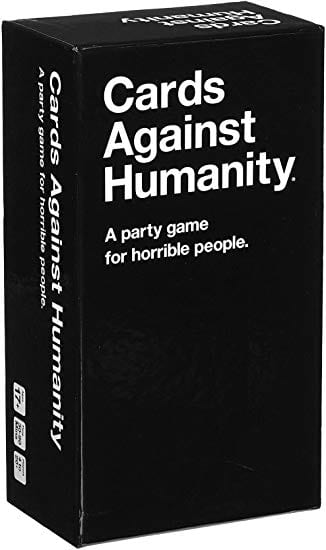
Trust me, we weren’t super high on this pic either. It’s been nine years since Cards Against Humanity came out and it is really starting to show its age. Crude and edgy humor isn’t enough of a selling point anymore. But, like it or not, the game was and is a damn phenomenon. It’s on every game shelf, in every game cafe, and basically everyone on earth has played it. Even parents are playing it now. It also arguably kicked off the new board game craze as people rediscovered how fun it is to sit around a table or living room and play games. No matter how you feel about it (and let’s be honest, we all loved it at some point), it made a massive mark on the industry that can still be seen nearly a decade later.
Zombicide (2012)
Publisher: CMON
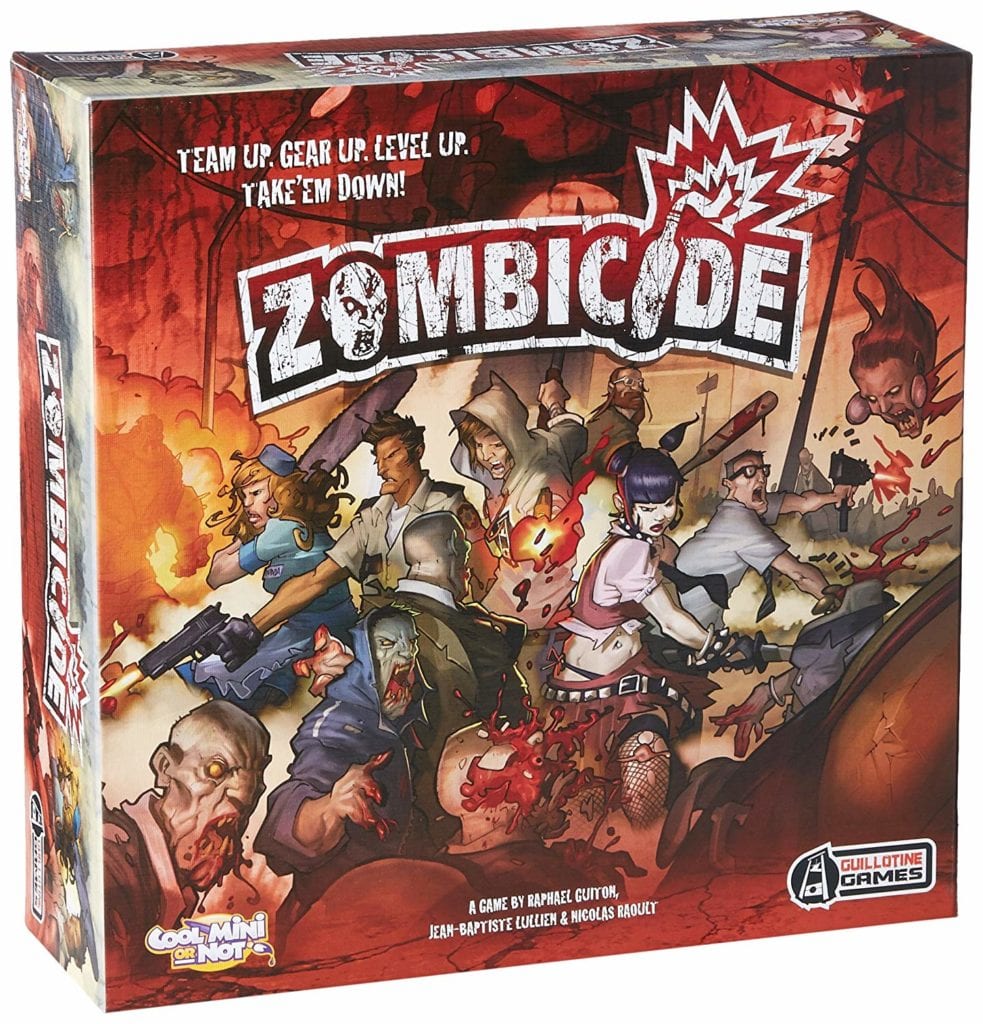
Remember the zombie craze of the early 2010’s? Thanks largely to the popularity of The Walking Dead, zombie-themed things were all the rage, and board gaming was no different. There were and are dozens of games tackling the undead, but the gold standard for the genre is still Zombicide. While other games made hunting and killing zombies a theme, Zombicide turned it into an event with a pretty damn innovative mix of board gaming and traditional tabletop RPG elements. It also was one of the first “big box” board games to break out of the hobbyist market thanks to its amazing art, fun games and incredibly detailed minis. This model was soon replicated by many other companies, and the “big box” game was no longer the exclusive purview of hardcore hobbyists. The tabletop RPG gameplay mixed in to the game also presaged the subsequent rise of the “legacy” games that have become more and more popular in the industry in recent years.
There have been thirteen expansions and core spin-offs since the game’s initial release, and with a Second Edition and three new expansions due later this year, Zombicide seems as unrelenting and hard to kill as the zombies themselves.
Sentinels of the Multiverse (2011)
Publisher: Greater Than Games
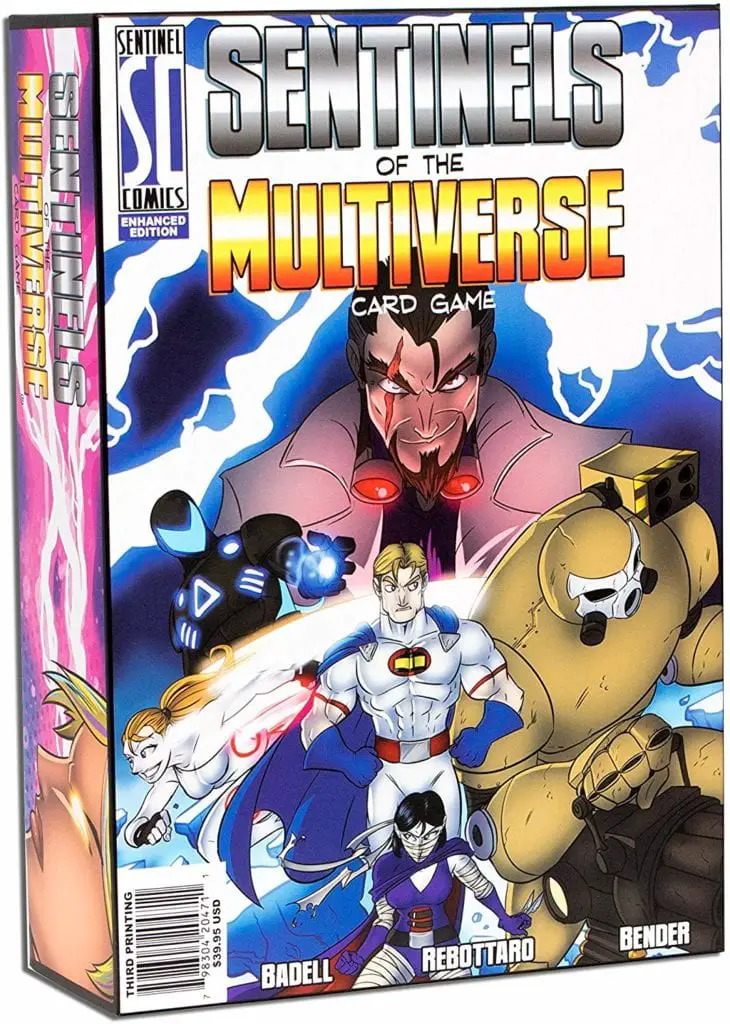
Truth be told, we’ve got a soft spot for Sentinels. Dan demo’d it at it’s debut GenCon (got some signed art, too) and it’s been a big part of his friends’ game rotation ever since. But it deserves a spot on this list on its own merits as well, simply because it was the only game to spawn its own multi-media project. The game itself is an incredibly fun and creative co-op game, full of colorful characters and genuinely challenging villains that ensure it’s infinitely replayable. But in the myriad boosters and expansions that came out throughout the decade, Greater Than Games has created a rich comic book universe full of as much drama, intrigue, and alternate universes as any Marve or DC property. There is, naturally, a Sentinels comic, a companion app, and now a video game. All of this from a fun and loving tribute to comics in card game form.
DC Deckbuilding Game (2012)
Publisher: Cryptozoic Entertainment
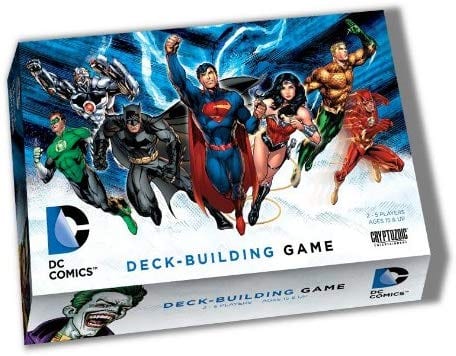
“Deck-builders,” games that mix the powers and competition of CCG’s like Magic the Gathering with board game mechanics and presentation, started in 2008 with Dominion. A certified classic from Rio Grande Games and winner of multiple awards including the 2009 Spiel des Jahres, Dominion remains the game people use to illustrate what a “deckbuilder” is. But it wasn’t Dominion that helped explode the genre into the juggernaut it became. That honor goes to Cryptozoic’s DC Deck-building Game, which followed Dominion four years later. It merged the proven formula of the deck-builder with the classic heroes and villains of DC Comics, changing the formula up a bit by having players battle villains in a semi-cooperative (but still competitive) fight to save the DC Universe. It was a huge success and helped launch Cryptozoic into the upper echelon of game companies.
If the genre was popular before this game, it became dominant after as casual players drawn in by the theme and accessible gameplay suddenly found themselves hungry for more and more deckbuilders. Even today’s industry puts stake in deck-builders, finding new variations on the classic formula. Cryptozoic has even gotten in on it, reinventing the game with Rebirth, which turns it into a fully co-op campaign game.
One Night Ultimate Werewolf (2014)
Publisher: Bezier Games
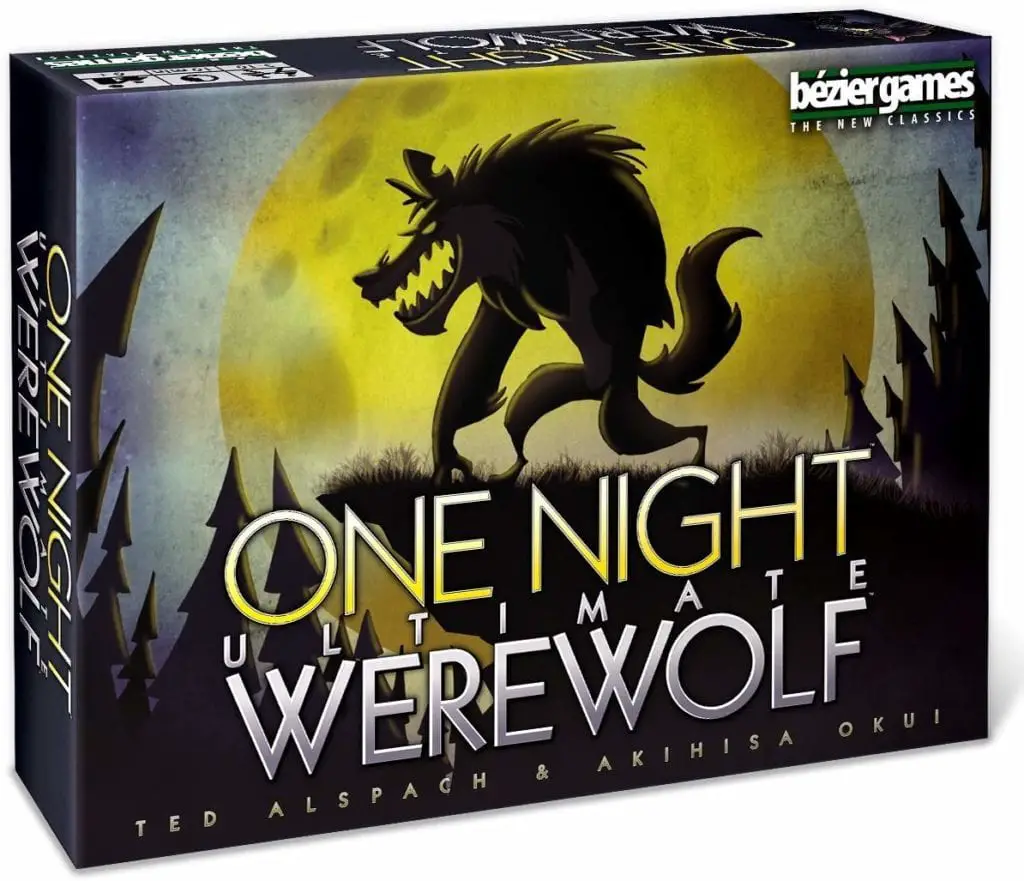
Anyone who has been to a board game convention speaks with reverence, awe, or fear of “Werewolf Night,” when everyone interested gathers together and dozens of different social deduction games take place at the same time. The one at GenCon stretches down at least three city blocks in the convention center. The exploded popularity of these games can be largely attributed to One Night: Ultimate Werewolf , which took the classic game of Werewolf/Mafia and streamlined it for maximum chaos and enjoyment. Rather than the slow machination of the original, the guessing and bluffing of One Night takes place in just one morning and ends after…well…one night. Extremely well-decorated when it was released, it became one of the decade’s best selling games and spawned more spin-offs than the X-Men, adding in new characters or changing the theme entirely to supervillains, aliens, and more. While regular Werewolf remains popular, and the market for social deduction games gets more crowded every year, One Night remains the gold standard against which all others are judged.
Dead of Winter: A Crossroads Game (2014)
Publisher: Plaid Hat Games
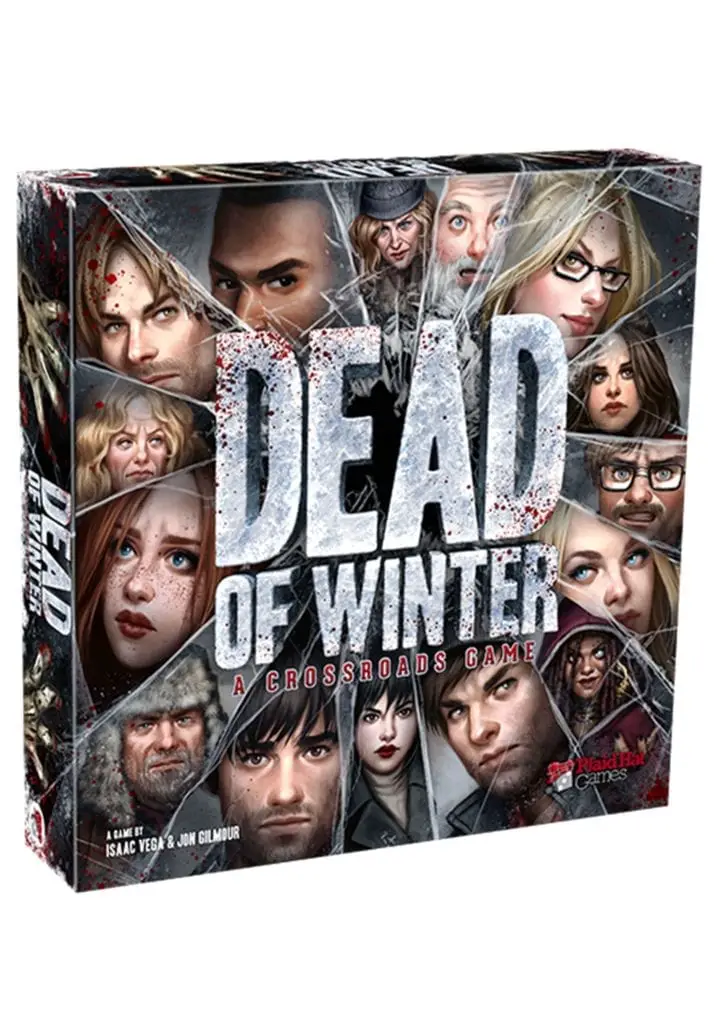 One of Cat’s favorite board games of all time, Dead Of Winter was an explosive success of a game that helped popularize what publisher Plaid Hat calls “meta-cooperative” gameplay, in that the players are all working towards a common goal but each have some hidden objective that can affect their fellow survivors. Dead of Winter changed the way people thought about co-op games. It presaged more variations on the format, and a direct line can be drawn between its success and the recent asymmetrical game craze.
One of Cat’s favorite board games of all time, Dead Of Winter was an explosive success of a game that helped popularize what publisher Plaid Hat calls “meta-cooperative” gameplay, in that the players are all working towards a common goal but each have some hidden objective that can affect their fellow survivors. Dead of Winter changed the way people thought about co-op games. It presaged more variations on the format, and a direct line can be drawn between its success and the recent asymmetrical game craze.
Pandemic: Legacy (2015)
Publisher: Z-Man Games
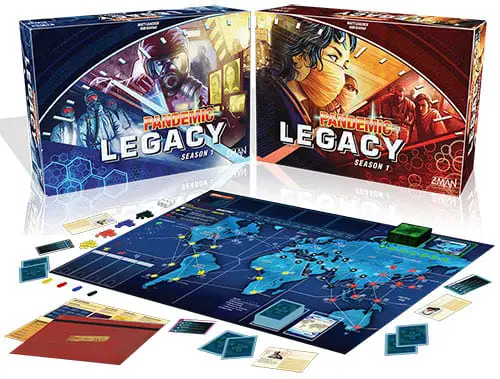
Pandemic: Legacy did not create the Legacy game format, which sets up board game campaigns that take place over multiple sessions with the game irreversibly changing as the game goes on. That honor goes to Risk: Legacy in 2011. But what Pandemic: Legacy did is perfect the form in such a way that it appealed to the masses and proved that the Legacy format was here to stay. Just like normal Pandemic, players must travel the world and cure outbreaks of disease. But the new format injects a story into the game, with month-to-month objectives, shifting board states, and damage to the board and cards as the story goes on. Rules and characters change as things go on as well, and no two sessions are ever the same.
The success of Pandemic Legacy Season 1, and its follow up Season 2, led to more Legacy games released from all over the industry, and a greater interest among fans in long term, story-based gaming. The timing of the Legacy craze is no surprise, taking place alongside the rising popularity of tabletop RPG’s. Legacy gaming may still be a little expensive for some, but Pandemic:Legacy helped changed the gaming world for good.
Eschaton (2016)
Publisher: Archon Games
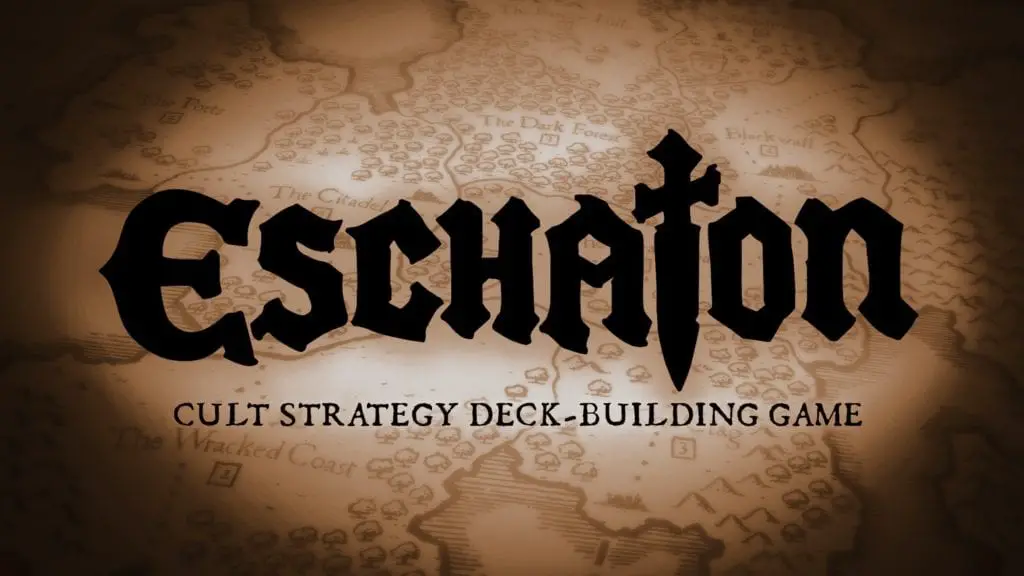
This pick is fueled more by our love for this game than any strong analysis of it as a big innovator or major turning point. It just genuinely is one of our favorite deck-building games of the decade. The first game from new studio Archon Games, it helped them make their name as both an excellent design shop and masters of aesthetic. Combining deck-building with strategy wargaming, Eschaton was deliciously dark in every way, reveling in grotesque, apocalyptic imagery that made the game equal parts horror and black comedy. A second reprint of the game did gangbusters on Kickstarter, as did Nexus Infernum, set in the same universe as Eschaton and keeping the same look and feel. The Dark One continues to work his plots, and we know now what the future holds. Will you join the cult?
Gloomhaven (2017)
Publisher: Cephalofair Games
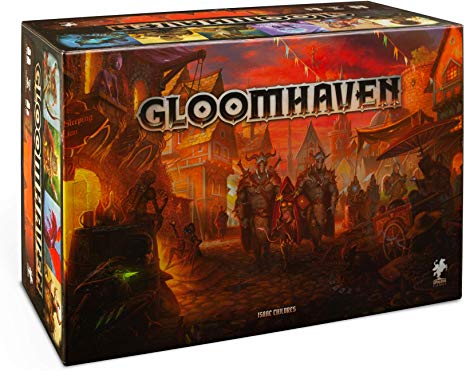
If Zombicide helped define the power of the “big box” game, then Gloomhaven perfected it. So much ink has been spilled our of love for this game, it’s hard to say anything that hasn’t been said already. Very much a “campaign in a box,” Gloomhaven lets players experience dungeon crawling action, choice-based storytelling, and tactical strategy all at once. Even more than previous games, it tapped into the tabletop RPG crowd and reached the top of the sales charts almost overnight. Similar games, old and young, got new attention as people clamoured for similar games, and publishers have been happy to oblige. Board game cafe’s saw Gloomhaven groups compete for table space with weekly D&D groups. Its rise was almost unprecedented, shocking designer Isaac Childres, and showed that indie publishers and designers still have the power to change the business. There’s already been expansions and spin-offs to the game, as well as a video game released. The announcement of Frosthaven, an expansion equal in size to the original, means there’s still planety of gas left in the tank for Gloomhaven.
Root (2018)
Publisher: Leder Games
The most recent game on this list Root is, along with Gloomhaven, a game that is still making waves in the industry as we enter the new decade. After dirty card games, deck-builders, and legacy games had their time in the sun, Root made asymmetric gameplay the new hotness in game design. Unlike co-op games, or games like Dead of Winter that add in a traitor or two that might impede the shared goal, Root and games like it give each player their own goal to pursue. Leder already had success with the formula in Vast: The Crystal Caverns, but Root was a monster hit thanks to easy to understand strategy gameplay and an adorable woodland aesthetic straight out of a storybook. The Riverfolk and Underworld expansions already have sold incredibly well, and the upcoming Clockwork expansion is eagerly awaited around the globe. Publishers were quick to oblige the demand, and the era of asymmetry has well and truly begun.
Did we miss any out? What will the next decade look like? Sound off in the comments, and keep an eye on The Fandomentals on the latest from around all corners of the board game world.
Images via their respective owners.


